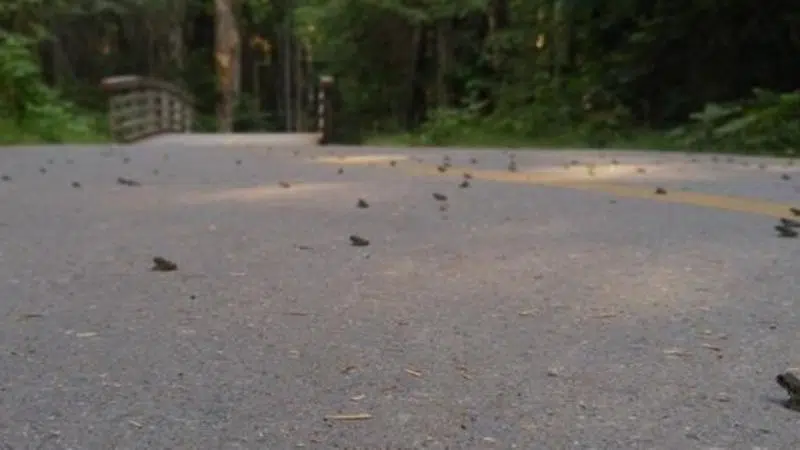
Migration begins: blame toadlets if ground seems to move in Whistler, B.C.
WHISTLER, B.C. — An annual migration involving tens of thousands of creatures is underway in Whistler, B.C., but observers could miss it if they don’t look down.
Up to 40,000 tiny western toadlets are climbing out of Whistler’s Lost Lake where they hatched as tadpoles and are moving into the surrounding forest.
The dime-sized toads, which are native to British Columbia and listed as a species of special concern, grow to full size in wooded areas before returning to the lake to breed.
The Resort Municipality of Whistler says western toads are an important part of the Lost Lake environment because the tadpoles feed on residue in the lake, keeping the water clean.


